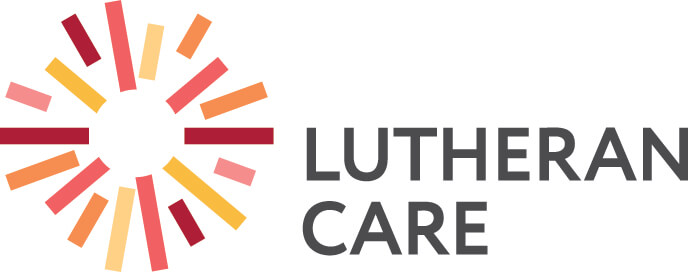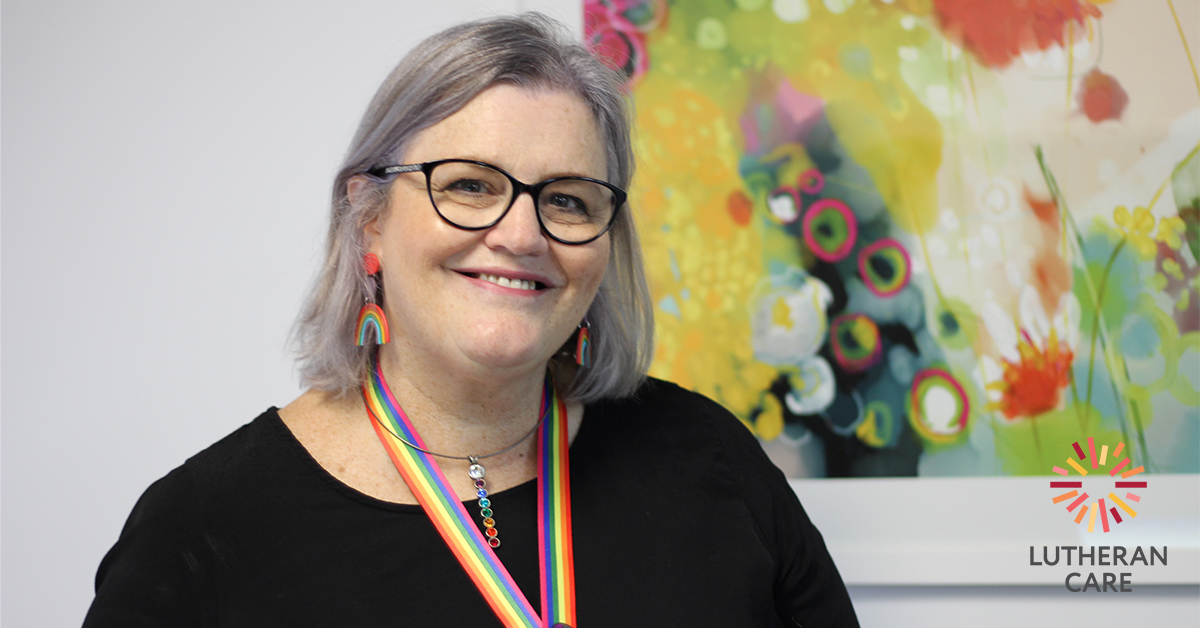1. What motivates you to work at Lutheran Care?
I am motivated by the opportunity to contribute toward positive change and inclusion through the work of Lutheran Care. Every day, I have the privilege to connect with staff who are passionate about their work and hear the stories of the people we serve in the community. There are countless opportunities to identify new ways of helping individuals achieve their goals, make positive changes, and feel safe to share their stories. As an Executive at Lutheran Care, I feel heard and respected by my peers and others. I joined Lutheran Care because I believe I have a lot to offer this organisation in terms of my skills and knowledge, and there has always been room for me to have a voice and engage in healthy debates about differing opinions, knowing that each debate is centred on achieving the best outcomes for the clients we serve. It is an honour and a privilege to work in an organisation like Lutheran Care.
2. Can you tell us a bit about your journey to reaching this point in your career?
I was a mature-aged student when I pursued my degree, initially intending to focus on social policy and youth justice. However, my path took a different turn, and I ended up completing my final placement in Women’s Health. This experience led to many years of working in women’s health services both in my local area and in the ACT. During this time, I had the opportunity to build some incredible support groups for women who identify as LGBTQIA+, survivors of childhood sexual abuse, and women experiencing domestic violence.
Eventually, I studied Narrative Therapy with Michael White at the Dulwich Centre and began a counselling practice for women and families. I was fortunate to be given my first senior management role in a large not-for-profit organisation in South Australia, where I oversaw Foster Care, Disability services and Family and Relationship services. It was during this time that I realised I had a growing passion for community work in the not-for-profit sector. I was hungry to learn more, do more, and work towards creating change from within, with people who were the experts in their own lives.
I have been working in the not-for-profit sector for over 25 years, and I have witnessed a lot of change in our sector. However, I believe that we are currently seeing a shift towards greater collaboration and social agitation through partnerships, consortiums, and alliances. This is an exciting time, and I am thrilled to be a part of this movement.
3. How do you demonstrate this year’s theme “Embrace Equity”?
Embracing equity for me involves actively working towards creating a fair and just society where everyone has the opportunity to succeed and access to the resources and support they need. As a feminist, equity is at the core of who I am. I believe it is crucial to speak out against oppression and advocate for policies and practices that promote equality, diversity, and inclusion in all aspects of life and work. Lutheran Care is committed to Diversity, Inclusion and Equity, and I’m really proud to be taking a lead role in the development of our action plans for the organisation. Just thinking about the inclusive consultations with our workforce is so exciting. To me, embracing equity means actively taking steps to bring about positive change, such as the development of these policies and procedures and very importantly using my right to vote and participate in social justice movements such as IWD, Pride and Reclaim the Night.
I am also looking forward to the upcoming referendum for the Aboriginal and Torres Strait Islander Voice and have faith that it will be the beginning of addressing the wrongs that have been done to First Nations people. I believe that just as the Yes vote was significant for the LGBTQIA+ community, the Voice referendum will create a starting point for working towards equity and justice for First Nations people.
4. What is the best piece of advice you have received?
Years ago, I participated in a women’s network group where we were asked to share our strengths and proudest accomplishments. I found it difficult to think of something to share, but one of the group members who knew about a successful activity I had facilitated encouraged me to speak up. Despite feeling embarrassed and nervous, she reminded me that I had to “toot my own horn,” because if I didn’t, no one else would. I still remember her words whenever I am asked to talk about my achievements.
5. Any other information you would like to share?
As a mother to a daughter and a grandmother to two granddaughters, I have observed that their experiences of the world are vastly different from mine as a younger woman. I can see the achievements of the women’s movement through the way they live their lives. One of my granddaughters confidently claims her space and is unapologetic about it, while the other has a life goal of living with lots of dogs. My daughter is a teacher who promotes gender inclusivity by using language in her classes that allows boys to be beautiful and girls to be daring. This narrative was not present in a child’s schooling experience 40 years ago, where girls were expected to be demure and not take up space. It’s inspiring to see the progress that has been made and the potential for even greater change in the future.
The Yes vote completely changed my life. It allowed me to marry my life partner of 15 years, and together, we have raised amazing adults and loving grandchildren. The vote gave us a chance to dream of our future together and affirmed for our LGBTQIA+ community that our relationships are valid and genuine. Feminism led the way to “queer inclusion” through activism and agitation, and for that, I am incredibly grateful.

